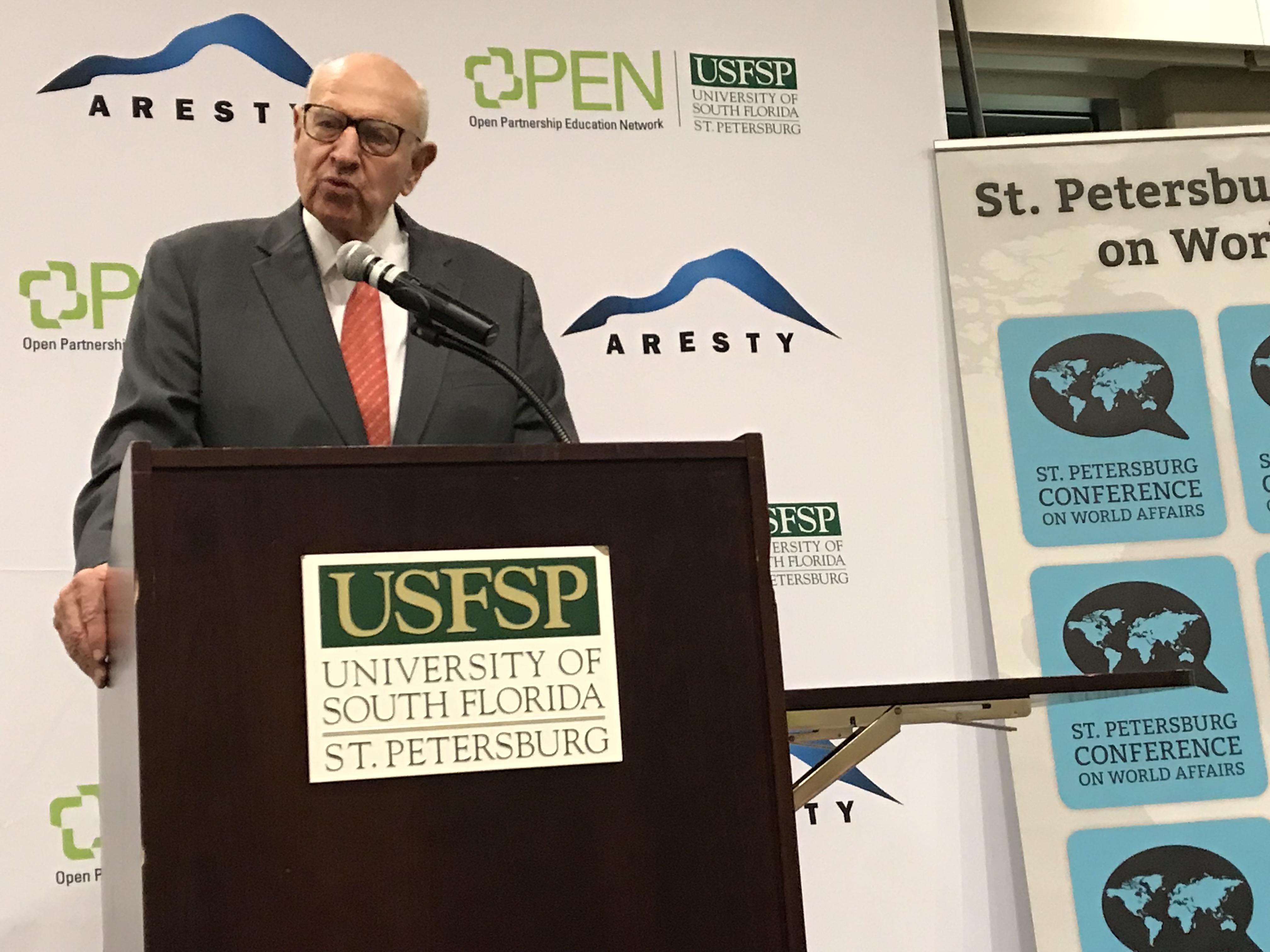Above photo: It is important to recognize that the world’s problems are “deeply intermeshed,” Thomas R. Pickering declares at the campus’ sixth annual conference on world affairs. Nancy McCann | The Crow’s Nest
By Nancy McCann
Today’s international environment is the strangest and most unpredictable he has ever seen.
That assessment came Tuesday from Thomas R. Pickering, a former U.S. ambassador to
Russia, who told an audience of almost 500 at the opening of St. Petersburg’s Conference on World Affairs that the art of diplomacy is changing very quickly.
In the conference’s keynote address, Pickering said the rapid decline of democratic norms in
Washington and high-speed electronic communication don’t leave us with “much time to think
these days.”
China and Russia are “particularly challenging,” he said, but this does not mean we are
“inevitably destined to enter into broad conflicts with either of them.”
Pickering said because of the “diminishment” of the United States’ popularity around the world,
diplomatic relationships are vital.
It is also important to avoid unintended consequences by understanding how the problems of
the world are “deeply intermeshed,” such as energy policy, the environment and climate
change, he said.
Pickering’s career as a U.S. diplomat stretched over five decades. He was the under secretary
of state for political affairs in 1997-2000 and served as ambassador to Russia, India, Israel,
Nigeria, Jordan, El Salvador and the United Nations.
He has the title of career ambassador, the highest rank in the U.S. Foreign Service, and is now
chairman of the board of the Institute for the Study of Diplomacy at Georgetown University’s
School of Foreign Service.
Pickering’s address kicked off four days of presentations from more than 70 diplomats,
academics, authors and business executives on the USF St. Petersburg campus.
The sixth annual international affairs conference is expected to draw about 2,000 people to hear
from nearly 40 panels of experts. It ends Friday.
In his keynote address, Pickering offered an overriding message: Avoid single solutions, like
relying solely on the military to solve problems in countries like Iran, Syria and North Korea. He
said he is nervous “in this day and age where presidents speak lightly of using nuclear
weapons.”
Diplomacy should be “out in front” and the military should be used in instances where we have
to defend the country, he said. “Diplomacy always works best when we have the world’s best
military, the world’s best economy and the world’s best set of principles and values.”
Pickering said he agrees with President Donald Trump in “ratcheting up pressure on North
Korea,” but said that needs to be linked with the opening of diplomatic channels.
He likened toughness without diplomacy to welding the top of a pressure cooker shut. If it keeps
on going, he said, it will explode.
“We are not as a government well configured with this rapidly changing world,” said Pickering.
But in the end, he said, the fundamental checks and balances of our system will prevail.



